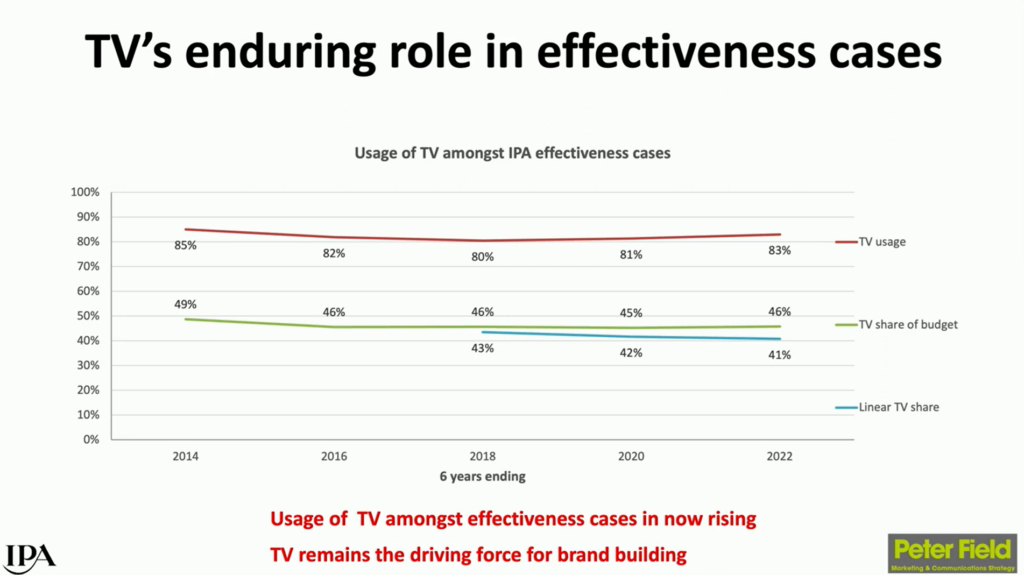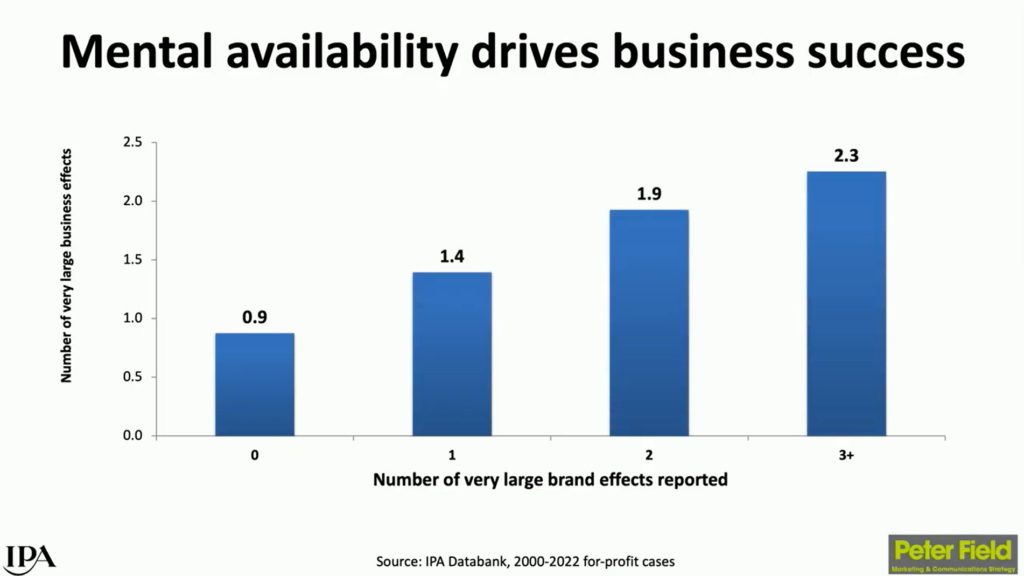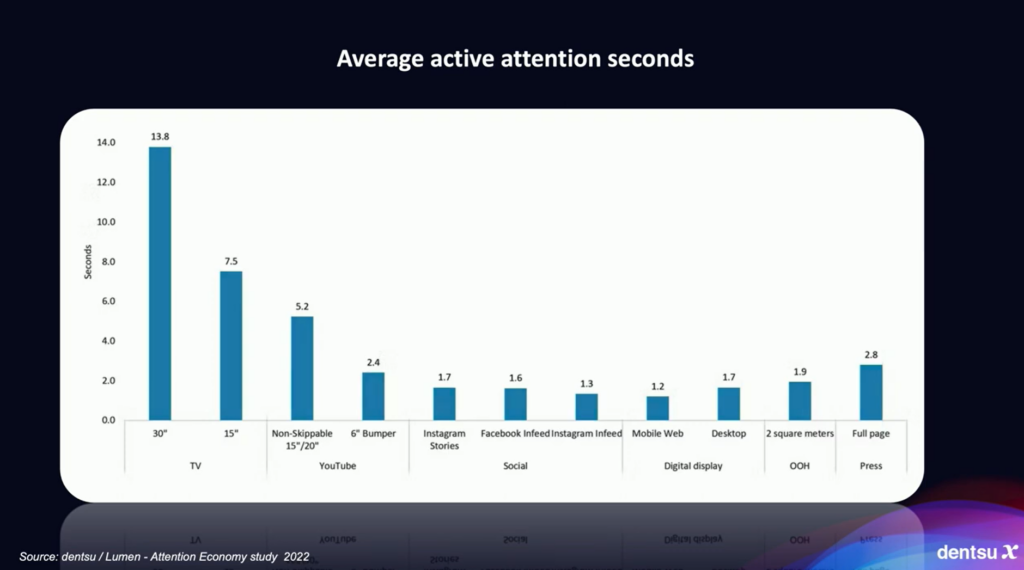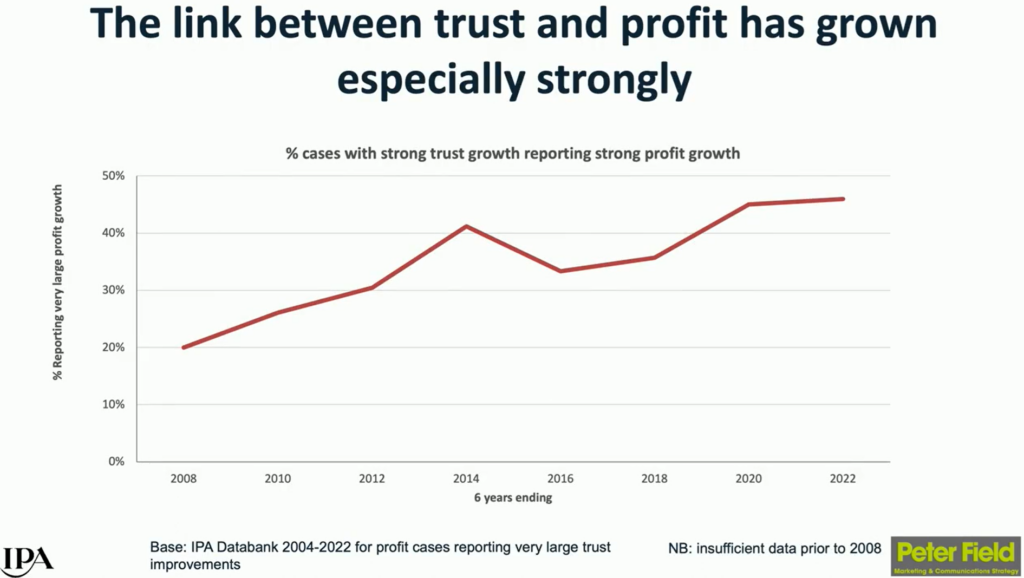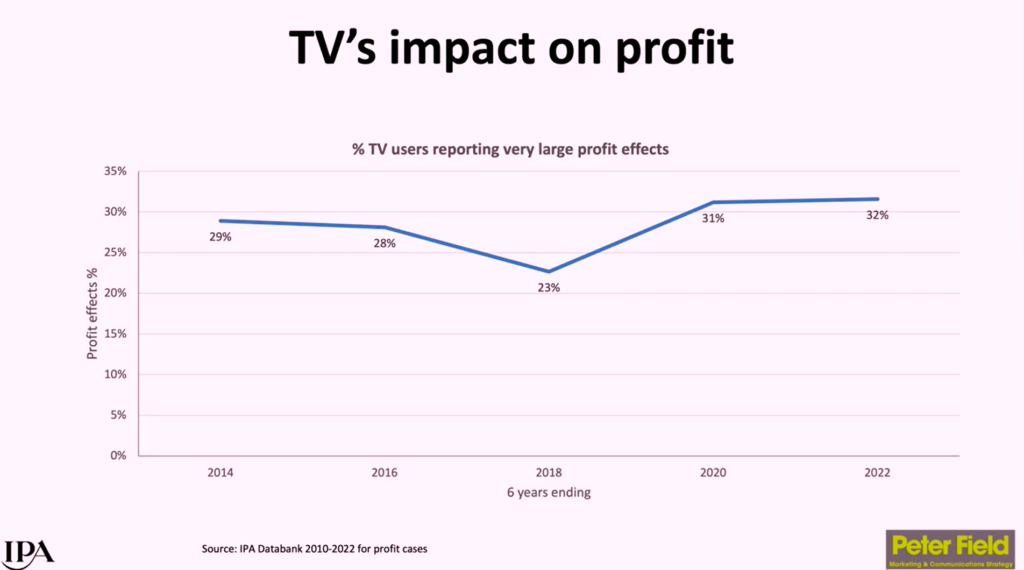Peter Field: why tv is still at the heart of effectiveness
Peter Field is well known for his effectiveness research and insightful presentations, but his keynote at the 2023 Future of TV Advertising (FTVA) Global conference was among his most impassioned.
Using the latest data gleaned from the IPA’s global Effectiveness Award submissions, Field laid out a convincing argument supporting the superior effectiveness of TV advertising.
Field began by reminding the crowd that long- and short-term effectiveness are very different: The goal of long-term brand-building exercises is to build demand in the future, while short-term tactics are about sales right now.
Importantly, while short-term tactics are focused on existing buyers – consumers in the market now (otherwise known as low-hanging fruit) – long-term efforts, to be successful, should aim to reach all potential buyers, building mental availability and therefore priming them for future demand.
To that end, Field together with Les Binet famously came up with the 60:40 rule, which recommends putting 60% of a brand’s budget towards long-term brand-building initiatives and 40% towards short-term tactics (with a few exceptions depending on the category and brand life cycle).
TV excels at long-term impact
Field emphasized to the FTVA audience that TV continues to excel at achieving long-term impact: “If TV was losing its strength with effectiveness, we would expect a declining role for TV … in fact [our analysis showed that] it’s not just rock steady, it’s grown in the last few years.”
Three effectiveness attributes that keep TV on top
“TV is still the dominant driving force for long-term, top-of-funnel demand growth” said Field, and the three effectiveness attributes that keep TV on top are:
- Attention
- Emotional clout
- Trust
Why is attention so important? Because it builds mental availability.
Mental availability drives business success
All the work of the Ehrenberg Bass Institute, as well as databases like the IPA, prove that if we’re not building mental availability – the extent to which our brand comes into the minds of consumers at the moment of choice/point of purchase – then we will not drive enduring growth for that brand. Field says this is “a fundamental law that is massively overlooked in marketing.”
Field went on to share some of Karen Nelson-Field’s research, which demonstrates that if we want to build mental availability, then video advertising needs at least 2.5 seconds of attention before we begin to form long-term memories that will drive enduring growth for brands. And yet her research also found that, in a review of 130k online video ads covering 1,100 brands, a full 85% failed to meet the 2.5-second threshold – and were therefore not able to build mental availability.
TV, on the other hand, was much better at driving “active attention seconds” and, ergo, mental availability.
Field asked, given TV’s superior attention attributes, “Why would any sensible marketer walk away from that medium? Even if you’re targeting young people.”
TV delivers emotional impact and trust
Field also emphasized the power of TV to elicit emotion, sharing research that shows TV boosting the effectiveness of emotional campaigns, underlining the fact that “there is a strong relationship between TV and the fast lane of effectiveness.”
Finally, Field shared that there is a strong link between the trust that is built in a brand through advertising and the profit generated for that brand – and that link has grown especially strong. Consumers want to trust the brands that they’re buying.
This speaks to TV’s strength again. Since we’re more likely to trust the content on the platform, we also trust the advertising. Field’s IPA analysis found that TV consistently delivered “pro trust” sentiments, adding to the effectiveness of the campaigns analyzed.
The net-net of TV’s ability to deliver attention, emotion, and trust is that TV has a tremendous impact on profit. This effect has not only been substantiated by extensive research but has also actually grown in recent years.
CONTRACTOR: thinkTV¨
Řečník: Peter FieldVíce informací

